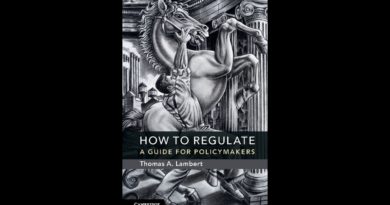Chile’s Battle Against MFNs – Kluwer Competition Law Blog
Introduction
The second half of 2023 was hectic regarding digital markets for the Chilean competition authorities (Fiscalía Nacional Económica or “FNE”, the competition agency, and Tribunal de Defensa de la Libre Competencia or “TDLC”, the competition court). In the context of more local investigations on more complex markets, a new target emerged as an enforcement priority: most-favoured nation clauses (“MFNs”) on two different markets, those of restaurants delivery apps and hotel accommodation platforms.
Although in the FNE’s inquiries, a traditional risks-efficiencies balance analysis was used for MFNs, the agency has opted for a more precautionary approach for their prosecution by using enforcement tools already present in the Chilean Competition Act, different from simply lodging a lawsuit before the TDLC. At the same time, the competition agency used an advocacy tool (market inquiries) to analyse MFNs and propose the initiation of an investigation for infringements of the Chilean Competition Act.
Enforcement in restaurant delivery apps
In November 2023, the FNE closed an investigation opened in 2021 against local restaurant delivery apps (Uber Eats, PedidosYa and Rappi) for vertical restraints, such as exclusivity agreements and MFNs with restaurants (Delivery Apps, 2021
During the investigation, the FNE uncovered different types of MFNs in the agreements with restaurants. For example, in the case of Uber Eats, the parties agreed that the price in the platform should be equal to or lower than the price offered in “a technological platform comparable to Uber Eats for food delivery and logistics services”. Regarding the app PedidosYa, the restaurants were imposed with the obligation to offer their products “at prices not higher to those prices offered in other digital platforms, equal or similar to the platform, unless there [was] an express agreement with the company” (in this specific case, these clauses were eliminated in 2022). At the same time, the MFNs in the app Rappi held that the restaurant should “keep the same quality, price and conditions of products and/or services that [the restaurant] offers to the rest of the public”.
There can be debate on whether these clauses can be categorised as narrow (i.e., similar to parity pricing only on the restaurant’s own website) or wide MFNs (i.e., parity pricing both on the restaurant’s own website and other platforms). While there is no direct mention of the restaurants’ own distribution channels, it can be reasonably argued that, in general, these provisions were aimed at keeping a price parity policy in the relationship with other platforms. Thus, they can be categorised, at first, as a type of wide MFNs (especially in the case of Rappi).
In terms of their substantive analysis, in the filing of the settlements before the TDLC, the FNE briefly explained that, according to the local 2014 Vertical Restraints Guidelines
The platforms settled with the FNE the termination of the MFNs and ordered the prohibition of agreeing new clauses or provisions with the same effects, while notifying the restaurants of the elimination of these obligations in the agreements and affirming their freedom to setting prices in any sales channel. The TDLC approved the three settlements, establishing, in any case, that these vertical restraints can generate risks as well as efficiencies so their enforcement must depend on the ponderation of these variables (Uber
Market inquiry in the hotel accommodation market
In March 2023, the FNE announced the start of an inquiry into the hotel accommodation market (Hotels, 2023
After reviewing the risks and efficiencies both reviewed in the literature and the case law (especially European case law), the FNE demonstrated that, by analysing a sample from the market, online travel agencies were the most used distribution channel by big, medium, and small hotels (100%, 100% and 81,5%, respectively) showing an increase on their market shares on the markets for tour operators and direct booking. In this context, Booking and Expedia leaded the market with more than 50% of joint market share, especially in the case of small accommodations, where the two platforms beared 80-100% of the market. In their contracts with accommodations, 52% of Booking’s contracts included MFNs. In the case of Expedia, this number increased up to 57%. Using web scraping, the FNE argued that the prices offered by accommodations were consistent with the inclusion of wide and narrow MFNs by online travel agencies. For example, in a sample (1079 search results regarding 601 accommodations), 51% of search results were consistent with the application of a narrow MFN by the most used travel agencies in Chile (Booking, Expedia, Despegar, among others), due to the uniformity in prices.
This analysis led to the conclusion that the MFNs constituted an extended conduct in agreements between online travel agencies and accommodations. The FNE recommended the initiation of an enforcement investigation against online travel agencies for infringements to the Chilean Competition Act. The competition agency concluded that MFNs were not part of the structure of the market but rather a behavioural decision taken by undertakings on the same market.
Enforcement over conduct in digital platforms using different tools
The discussion regarding the need for a special digital markets regulation has been present in the local debate during the last years, especially in the context of the current investigations by the FNE against Big Tech companies for unilateral conduct in similar terms to foreign cases (such as Meta
In this context, although there has not been a formal position by the Chilean competition authorities, it appears that the FNE has opted for this second approach, by using different tools to direct enforcement in order to address anti-competitive concerns in digital markets.
On the one hand, in the case of restaurant delivery apps, the FNE used court settlements to obtain an early termination of proceedings, without the need for filing a lawsuit and requesting interim measures before the TDLC for infringements to the Competition Act. Court settlements are embedded with a precautionary flair (this is reinforced by the legal text of the Chilean Competition Act
On the other hand, in the hotel accommodation inquiry, the competition agency, using its advocacy powers, obtained a significant amount of evidence and acknowledged the existence of a potential unilateral conduct. Since the FNE recommended the start of an investigation using its enforcement powers, it is expected to see whether it will follow the same approach as the Delivery Apps case. Nevertheless, the evidence obtained during the inquiry might facilitate the future investigation and the eventual enforcement of MFNs, either by submitting a court settlement before the TDLC or by lodging a lawsuit requesting the competition court remedies and fines against the involved undertakings (in a more traditional approach).
In the context of emergent digital markets
Conclusions
The Chilean competition agency’s battle against MFNs around these cases constitute the first enforcement measures directed at local digital markets. Instead of filing a lawsuit before the competition court, the FNE used two of its enforcement tools, court settlements and market inquiries, to agree on the remedies with the undertakings involved (without incurring in excessive efforts of investigation and litigation costs) and to obtain evidence of the state of the market, correspondingly.
In this context, these recent developments indicate a particular approach used by the FNE to digital markets: the use of existing enforcement tools (different from a traditional lawsuit before the competition court) for addressing concerns in digital markets following a precautionary attitude, without the need, in principle, for a special ex-ante regulation. Recent case law with these tools involved has proved to be effective to address these first anti-competitive concerns in Chilean digital markets.




